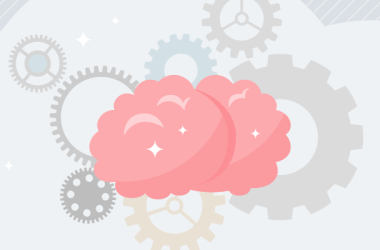Humans are known to be the wisest creature to live on earth. Many of the matters revolve around the world and as simple as our daily life is managed through mind. Mind and the brain often come hand in hand. This is true as mental health which involves disturbed mind has been caused by changes in the brain chemical affecting the brain function. In this DoctorOnCall’s article, we will learn about one of the many mental issues known as dissociative amnesia.
Dissociative amnesia is one of the several dissociative disorders that is characterised with a person forgetting the key elements of their life and is fully detached from fully understanding their own self. Dissociative disorder is defined as an involuntary escape from reality characterised by a disconnection between thoughts, identity, consciousness and memory. 75 % of people will experience at least an episode of depersonalization (a feeling that you are watching yourself from a far or out of your body) or derealization (a feeling where you feel the world around is unreal or foggy) throughout their life. 2 % will have chronic episodes. Most patients diagnosed with dissociative disorder are among women. Specifically in dissociative amnesia, a person would have the inability to recall important personal information that usually would not be lost with ordinary forgetting.
How does it feel like to have dissociative amnesia? Mainly, patients would have memory loss that is inconsistent with normal forgetfulness. The amnesia may be for a period of time, for certain types of experiences or for a large part of their childhood. It is rare for dissociative amnesia to be accompanied by purposeful travel or bewildered wandering known as fugue. There are 4 types of amnesia itself that could occur. The first one is localised which is unable to remember an event or period of time (most common type), the second one is selective which is unable to remember a specific event or some events within period of time, the third one is generalised which is complete loss of identity and life history (rare) and the fourth one is continuous amnesia which the patient forget each new event as it occurs.
Dissociation is a way of the brain to cope with immense stress. Symptoms of this disorder usually started when a person experienced extreme traumatic events in their life, it could be due to life in warzone, abused childhood or even any kind of abuse happening in adulthood. The person may or may not be aware of their memory loss even if they may seem confused. Some may look in distress while others may be indifferent. Contrary to medical amnesia which often occurs after an injury or stroke, those with dissociative amnesia rarely show concern about their condition. They become aware only when their personal identity is lost or when surroundings make them realise such as when others tell patients or ask patients about events they are unable to remember.
Since dissociative disorder usually involves trauma, many patients probably have other mental health issues related to trauma itself such as depression, anxiety disorder, suicidal tendencies, borderline personality disorder (BPD), substance use disorders, insomnia, posttraumatic stress disorder (PTSD) or hallucination and delusion. If you feel or notice you have any of these symptoms of a dissociative disorder or know someone who might also experience it, do get support and see a doctor soon. A specialist will do an assessment both physical check-up and questions about feelings, thoughts, behaviour and symptoms involved.
There are no specific medicines used to treat amnesia. Medications that can be given are often aimed to address the conditions coexisting. This includes prescription of antidepressants for mood issues or anti-anxiety medications for anxiety. Psychotherapy and other forms of therapy such as cognitive behavioural therapy (CBT) and dialectical behavioural therapy are often used to help patients with dissociative amnesia. This therapy aims to deal with issues associated with recovered memories of traumatic or stressful events. To recover from memory that is lost from a very short period of time, supportive treatment is usually enough especially when patients have no obvious need to recover memory of painful events. To recover from severe memory loss, it typically begins with a supportive environment and making a safe environment available for the patient. This alone leads to gradual recovery of missing memories. However, should such measures of a supportive environment not improve the memories or when there is urgent need to recover memories, patients are placed under hypnosis with questioning. In rare occasions, medication-induced semi hypnotic states are used.
It is important to help those with dissociative amnesia. Filling in the memory gap as much as possible itself is therapeutic in restoring a patient’s identity and sense of self that helps in creating a concrete life narrative. To help lift the amnesia is to help give them meaning of life. This can be achieved when the meaning of the underlying trauma or conflict is addressed, resolve problems associated with the amnesia and eventually aid patients to move on with their life.







